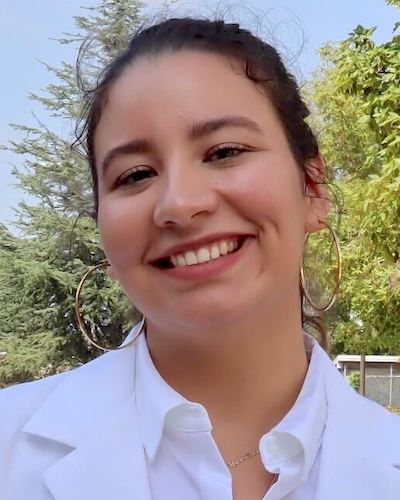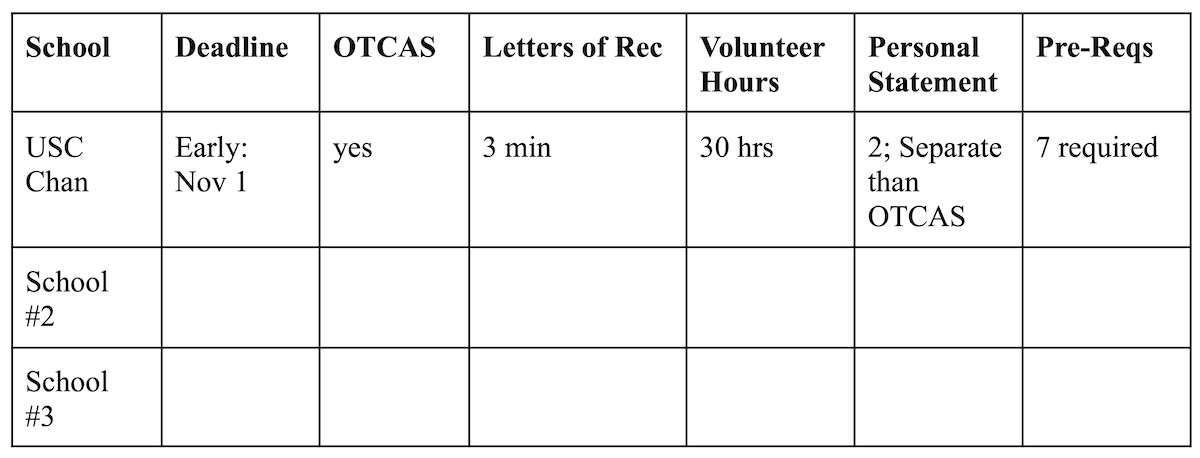In the words of Elle Woods, “What? Like it’s Hard?”

February 15, 2024
by Natalie
GRADUATE SCHOOL. Sounds scary doesn’t it? Being a first-generation student, I struggled to create a mental picture of myself at undergrad, let alone at grad school — but I made it through undergrad. I had all the support from my family and friends and was raised being taught there isn’t anything that can get in my way, and that if it felt like there was, to persevere and create my own path. So that’s what I did. But what no one told me was that the application process would be even scarier.
The application process for OT school was overwhelming to me. I began researching programs and their application requirements in late 2018 but only applied in the 2021 application cycle. At the time, I noticed that almost, if not all, the schools required applications be submitted through OTCAS and also had their own program specific requirements. Some schools required applicants to submit a supplemental application or submit an application to the graduate school at their university, required additional volunteer hours, or needed supplemental forms. I can fill another 4 pages to talk more about MY specific application process adventure, but instead I want to give all of you some information and tips that I think would have been useful to know before starting the process.
- Start earlier than you expect to. In doing my research and trying to find advice on how to navigate the timeline for submitting applications, I found a really cool schedule that gave me a monthly overview of what to complete in that month in order to submit my applications with a month or two to spare. Even with the timeframe laid out for me, some of my steps took longer to complete and I found myself being happy with having more time.
- Triple check the due date. The programs I applied to required that my application be verified by the due date. OTCAS will handle the verification process for your application, but in order to ensure it gets verified in enough time to meet the deadline, you need to submit your application three weeks earlier. It is completely possible for an application to get verified within a few days, but why stress yourself out with something that is so out of your control?
- Organize the requirements for your different programs in a way that makes sense for you. Because having multiple programs with different requirements can be overwhelming, it can be super helpful to organize the requirements in a list, table, chart, etc. I made a list for myself for each program, but looking back, a Google sheet or Excel sheet would have been more fitting. Seeing all of the programs and the requirements organized but in one place can be helpful, and using the Google/Excel sheet allows you to strikethrough or highlight the completed cells.

- Budget accordingly. Grad school applications can get expensive. OTCAS charges about $160 for the first program you apply to and around $70 for EACH additional program. On top of that, some schools have their own additional application fee. OTCAS does have a Fee Application Program which provides a waiver that covers the cost of the first program you apply to. (Note that these waivers are limited and come on a first come first serve basis.) Once you are accepted, many of the schools also require a deposit (not USC) to save your spot and those fees vary in price.
- Reach out to schools directly for help. It might feel a little daunting to reach out to a school to ask questions to clarify their requirements (especially if you are like me and overthink everything). Keep in mind, schools want you to apply to their programs. They want to hear from you, want to answer your questions, and want to do whatever they can to make this process easier for you. And no, they won’t be keeping track of the questions you ask or assessing you in every single interaction you have with them — if that were the case, that would be listed as an application requirement.
- Familiarize yourself with OTCAS. Most of the schools require applicants to submit their applications through the Occupational Therapy Centralized Application Service (OTCAS). Using OTCAS allows you to submit all of the requirements that overlap across the programs you plan to apply to, helps track your progress, and as I mentioned earlier, completes the verification process for you. As with anything new, it can be confusing to use without spending time to familiarize yourself with it first.
- Lean on your support system! I don’t need to tell you that your family and friends are there for you and want to see you succeed — that’s a given. But your support system is probably bigger than you realize — the OTs that you shadow, any mentors you have, they’re all there for you too and they have been through the application process before, giving them a specialized and extra relevant perspective.
- Be strategic with your personal statement. Most OT programs are working towards trying to diversify their student populations (yay!) and in doing so are looking for well rounded individuals. Sure your grades and past GPAs are important, but so are your personal statements, through which the admissions teams are getting to know YOU as a person. Furthermore, because OT is as holistic as it is, I believe there is an even greater importance in making sure your personality (and not just all your achievements) shines through your personal statement.
- Don’t underestimate yourself. To be fully transparent, I applied to USC Chan just for fun, and even worried I wouldn’t be accepted to any of my programs because of how long I had been out of school. Looking back, I can definitively say I applied to way too many programs and really should have had a bit more faith in myself. Now I can’t guarantee anything, but if you’re spending your time reading blogs like this to better prepare for the process, I bet you are an amazing candidate and will make it to where you want to be.
This is a long list of suggestions and advice, I know. I hope it helps you channel your inner ✨Elle Woods✨ throughout your application process! Please do not hesitate to reach out to me or any of my fellow ambassadors at .(JavaScript must be enabled to view this email address) if you have any other questions. Best of luck and Fight On!
⋯
Next by tag Admissions ⟩ First-Gen ⟩
⋯





